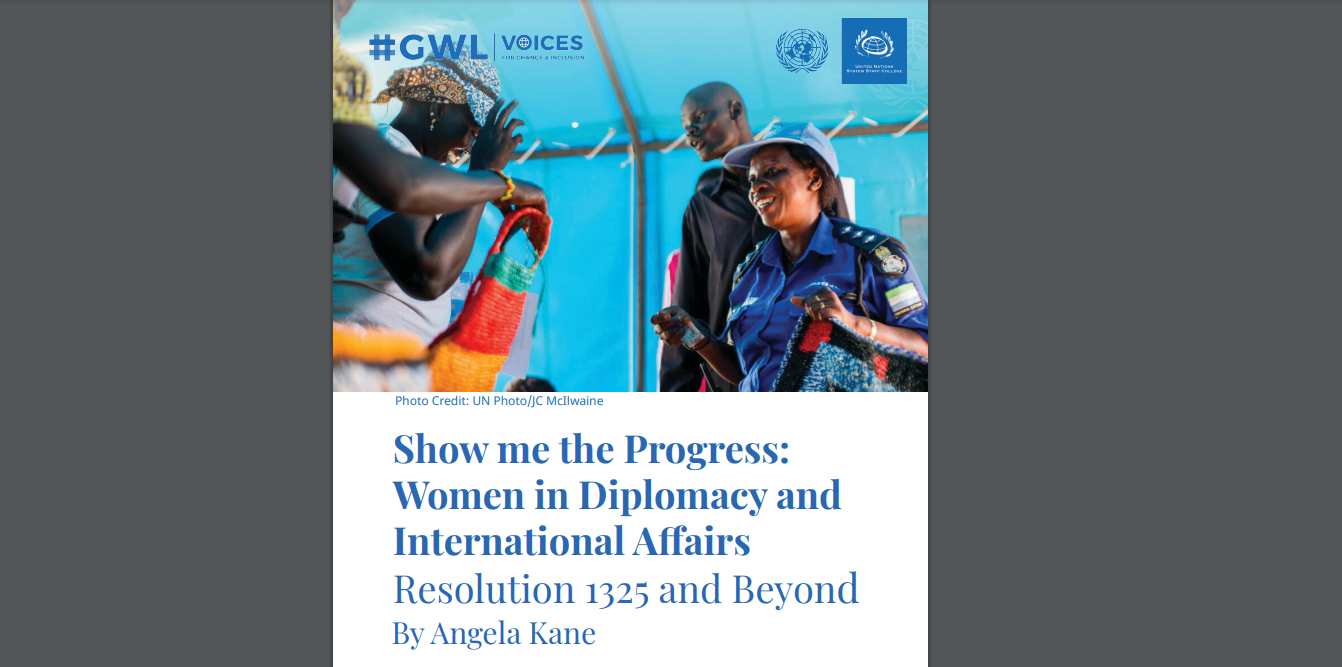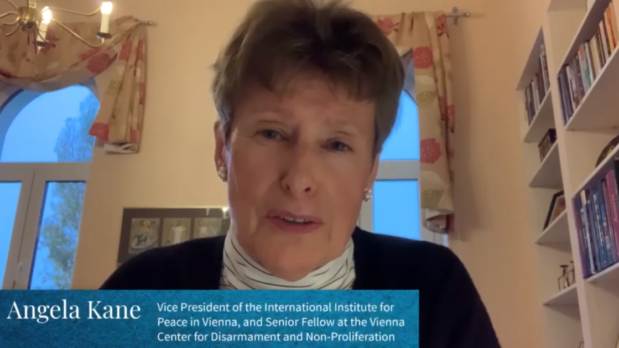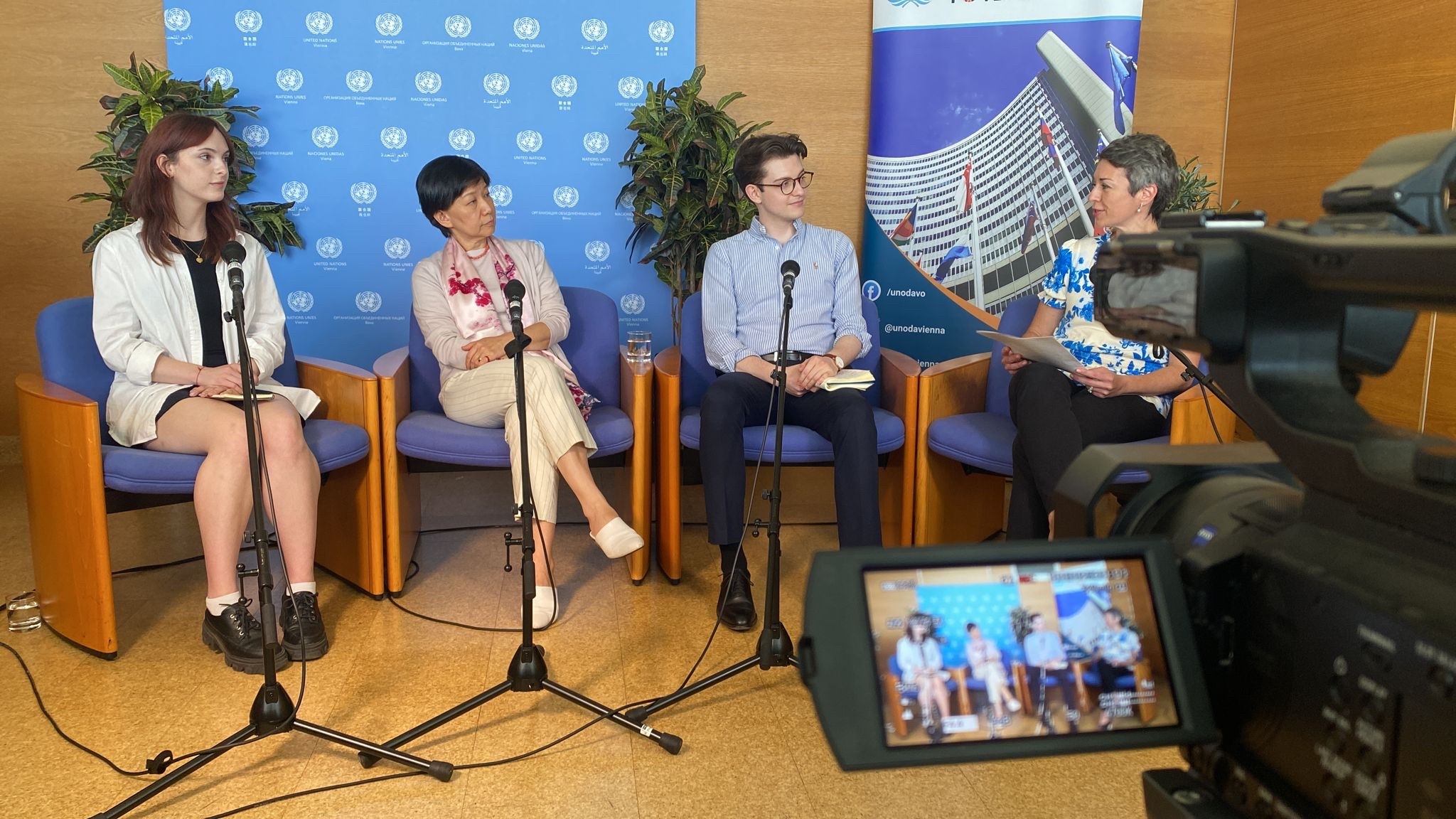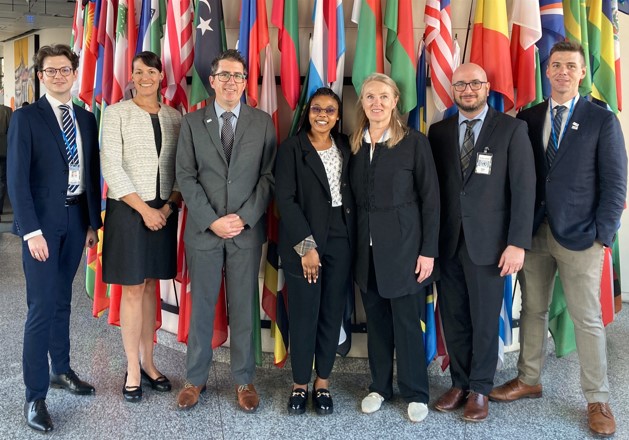
 There has been progress in gender equality since the signing of the UN Charter in 1945, but much work remains to be done as evidenced by the fact that women in power are still not the norm. Despite progress that has been made, even today women taking leadership roles in diplomacy remains uncommon and often unpopular in many parts of the world. This was one takeaway from a recent brief that VCDNP Senior Fellow Angela Kane published with the United Nations System Staff College (UNSSC) in partnership with the Group of Women Leaders Voices for Change and Inclusion (GWL-Voices).
There has been progress in gender equality since the signing of the UN Charter in 1945, but much work remains to be done as evidenced by the fact that women in power are still not the norm. Despite progress that has been made, even today women taking leadership roles in diplomacy remains uncommon and often unpopular in many parts of the world. This was one takeaway from a recent brief that VCDNP Senior Fellow Angela Kane published with the United Nations System Staff College (UNSSC) in partnership with the Group of Women Leaders Voices for Change and Inclusion (GWL-Voices).
One of the largest formal recognitions of the critical role of women in peace and security (WPS) was the adoption of UN Security Council Resolution (UNSCR) 1325, which seeks to increase female representation at all decision-making levels, bring a gender perspective into the planning and implementation of peace operations and increase attention to the protection of women's rights. UNSCR 1325 firmly planted WPS issues on the UN's agenda. Despite notable political grandstanding in the Security Council in recent years that has made WPS issues collateral damage, Ms. Kane argued that it is more productive to look to the future with concrete steps, rather than focus on past disagreements.
"Gender," she said, "is firmly rooted in the international security agenda, even if some states only grudgingly tolerate it."
However, in closing Ms. Kane observed that it is imperative not to lose sight of the divisions between UN Member States. Rather, States that support the WPS agenda must consider these divisions and weigh carefully on how best to proceed promoting the work enshrined in UNSCR 1325.
The UNSSC/GWL initiative of which Ms. Kane's brief is a part also includes a series of video messages and a virtual event on 2 March 2021. See here for more information and to read the other briefs written under the UNSSC/GWL initiative.

